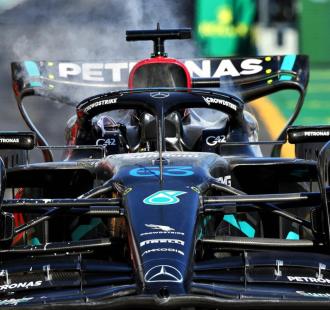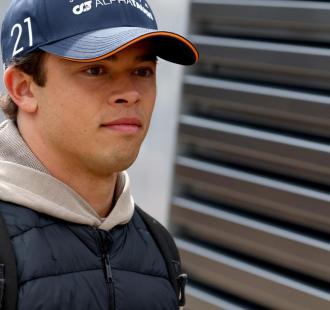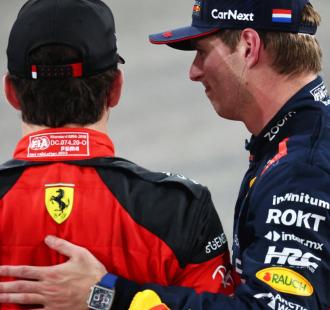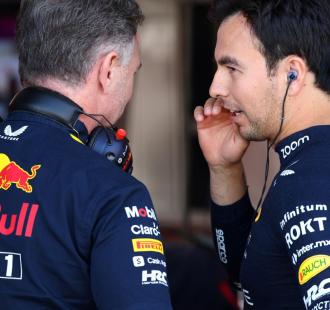
More grid penalties looming after rule change: is F1 going too far?
F1 teams will be faced with a major headache this season when itcomes to reliability after the FIA confirmed a return to stringentlimits for power unit components. Each car on the grid will beallocated three each of the Internal Combustion Engine [ICE], MotorGenerator Unit-Hybrid and Kinetic [MGU-H, MGU-K], and Turbo Charger[TC]. With F1 embarking on a record-breaking season length, is thesport's entertainment value - which has so evidently longed for inrecent years - be put at risk by the quest for efficiency?Component workload Three power unit components per car, per seasonis by no means a new restriction. But an amendment last season,aimed at helping the teams reach the end of the campaign withouthaving to take a grid [penalty given there was an increase to sixSprint races, allowed four components per car. That was with 'only'22 Grands Prix after the cancellations of the Chinese and EmiliaRomagna events. This season, however, 24 is the target for F1 and,finally, a record-breaking number. So with 24 races plus sixsprints, and the qualifying and practice sessions at each event,each component will have to last 20 practice sessions, 10qualifying sessions [of which two would be half-length by virtue ofthe Sprint Shootout], two Sprints and eight Grands Prix. Anyfailure when the workloads are as such would almost certainlyconfirm a grid penalty down the line for any driver, whichultimately would affect the overall show. Why are componentslimited? There are two main reasons why power unit components arelimited in F1 - both regarding sustainability. The main issue isfinancial sustainability. Teams in years gone by were able todevelop however many engines they needed to get racing - there wasone period of time when engines would be changed between qualifyingand the race! This, of course, got way out of hand and was in noway sustainable for any party, given manufacturers were alsosupplying customer teams. Such a burden not only impacted theincumbent OEMs but also proved a deterrent for incoming suppliersand the work done to drive power unit costs down in recent yearssince the introduction of admittedly expensive turbo-hybrids in2014 has paid dividends, with the new regulations in 2026 welcomingback Honda as well as flinging arms open for Ford [with Red Bull]and Audi. Cadillac has also signed up to be a supplier. Anothervital issue both the FIA and F1 are committed to is environmentalsustainability, with both parties setting ambitious net-zerotargets by 2030. Teams are targeting various facets of theirorganisations in order to reduce carbon dioxide emissions and oneway that can help is to reduce the manufacturing of components.Therefore, the limit placed on power unit components has a sizableenvironmental impact across the board. Road relevance is anothersticking point - especially for the FIA - with the topic a drivingforce behind new manufacturers seeking to join the grid. No OEMwould seek to transfer an engine that lasts a few hundredkilometres to a road car, so efficiency is a key attribute whenselling the sport to prospective entrants. What are the sportingconsequences Teams may be forced to run their power units wellunder 100 per cent power across the season. This would mean truepace could be masked and obviously alter the pecking order. It isworth noting that power units are often 'turned down', so thiswould be far from a new phenomenon. But still, part of theattraction of F1 is that these incredible machines are the pinnacleof motorsport, so anytime the full potential is left unyielded, adisappointing feeling is shared. But the biggest issue is that ofthe grid penalties. A failure for any component can often ruin aweekend - whether it is a lack of practice time leading to asub-optimal set-up, or a retirement from qualifying or the race. Tothen have a double-whammy and be forced into a penalty for thefollowing event is a sucker punch for the driver and fans alike.Whilst punishments must be given for the offence and not theconsequence, a title-deciding event in Abu Dhabi, for example,being interrupted by a grid penalty for one of the protagonistswould be an awful image for the sport - especially for the casualviewer who may be taking an interest in a similar way the 2021season finale gathered interest outside the traditional fanbase.One can only hope such a scenario doesn't come but for many thegrid penalties are an evil. However, for the longevity of thesport, they are a necessary evil.


